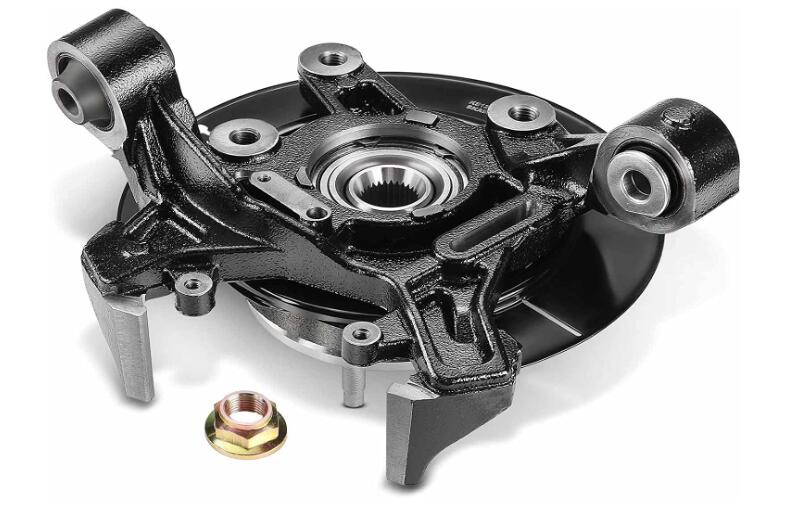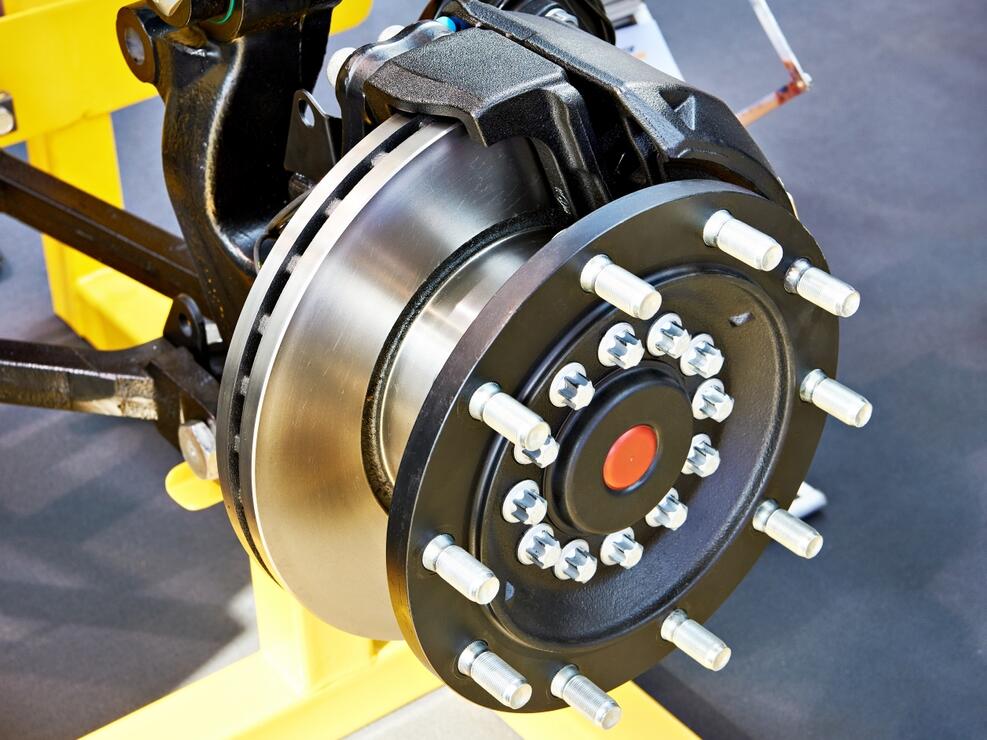Introduction
In the realm of automotive engineering, every component matters. The role of wheel bearings, in particular, must be balanced.
These humble components allow the wheel to rotate with minimal friction and bear the vehicle’s weight, absorbing heat and wear over time.
High-quality wheel bearings can significantly enhance vehicle performance, improving ride smoothness, fuel efficiency, and safety.
This article explores the importance of high-quality wheel bearings and how they can enhance your vehicle’s performance.
Understanding Wheel Bearings: An Overview
A wheel bearing is a set of steel balls or tapered rollers held together by a metal ring, known as a race.
They help wheels spin fast with as little friction as possible.
They are a critical part of the vehicle’s suspension system, serving dual functions: providing smooth wheel rotation and transferring loads from the vehicle body to the wheel.
There are different types of wheel bearings, including ball bearings, roller bearings, and tapered roller bearings.
Each type has its advantages and is suitable for specific applications.
For example, ball bearings, the most common type, are known for their versatility and durability.
They handle radial and thrust loads and are typically used in small cars.
The Role of High-Quality Wheel Bearings in Vehicle Performance
High-quality wheel bearings can significantly enhance vehicle performance in several ways:
Smooth Ride: Wheel bearings allow the wheels to rotate smoothly, contributing to a comfortable and smooth ride. A high-quality bearing is designed to reduce friction as much as possible.
Improved Fuel Efficiency: Wheel bearings in good condition improve fuel efficiency. They reduce the friction between the moving parts, so the engine doesn’t have to work as hard to move the vehicle.
Noise Reduction: A damaged or worn-out bearing can create a rumbling noise that gets louder with the vehicle’s speed. This noise can be distracting and unpleasant. High-quality bearings help reduce road noise, contributing to a quieter ride.
Increased Safety: Wheel bearings are crucial for vehicle safety. A faulty bearing can cause the wheel to seize or detach from the vehicle, leading to a loss of control. High-quality bearings are less likely to fail and provide a safer driving experience.
Maintenance and Replacement of Wheel Bearings
Regular maintenance of wheel bearings is essential to keep your vehicle performing optimally.
Wheel bearings should be periodically inspected for any signs of wear and tear.
If you notice a humming noise, feel play in the wheels, or your ABS light is on, these could be signs that your wheel bearings need attention.
Despite regular maintenance, wheel bearings will eventually need to be replaced due to normal wear.
When choosing a replacement, opting for a high-quality bearing is crucial.
While they may be more expensive upfront, their durability and performance advantages make them a wise investment in the long run.
Materials and Manufacturing of High-Quality Wheel Bearings
Wheel bearings’ material and manufacturing process significantly influence their quality and performance.
Typically, wheel bearings are made of high-quality steel due to their excellent strength and resistance to wear and tear.
The manufacturing process starts with forging the steel into the basic shape of the bearing, which is then further processed through turning, heat treatment, grinding, and assembly.
The precision of each step is crucial, and even minor deviations can lead to bearing failure.
High-quality wheel bearings are characterized by excellent surface finish and precise dimensions.
They undergo a heat treatment process that hardens the material, improving its load-bearing capacity and resistance to wear.
The surfaces of the raceways, where the balls or rollers contact, are finely ground and polished to minimize friction.
Advanced technologies such as vacuum degassing and isothermal annealing are often used in producing high-quality bearings to achieve superior cleanliness and uniformity of the steel.
This leads to longer bearing life and better performance.
Moreover, high-quality bearings feature superior sealing to protect the bearing from contamination.
They often use synthetic lubricants that offer better performance across a wide temperature range.
The lubrication significantly reduces friction and wear, enhancing the bearing’s performance and life span.
Testing and Certification of Wheel Bearings
Testing and certification are critical aspects of wheel bearing production.
They ensure that the bearings meet or exceed the automotive industry’s performance standards and safety requirements.
High-quality bearings are usually certified by recognized international organizations, assuring their quality and reliability.
Wheel bearings are subjected to a series of tests to evaluate their performance and durability.
These include hardness tests, dimensional checks, rotation precision tests, and noise and vibration tests.
More advanced tests like life testing (which involves running the bearing at high speeds until it fails) and spectrographic analysis (which detects the presence of any impurities in the material) are also performed.
Bearings that pass these rigorous tests and meet stringent standards are considered high-quality, more reliable, and durable.
The Future of Wheel Bearings
With advancements in technology and increasing demands for vehicle efficiency and performance, the future of wheel bearings looks promising.
Concepts like smart bearings, equipped with sensors to monitor their condition and performance in real-time, are on the horizon.
The advent of electric and autonomous vehicles also poses new challenges and opportunities.
For instance, in electric vehicles, the wheel bearings may need to accommodate the electric motor, requiring innovative designs and materials.
High-quality wheel bearings will continue to play a crucial role in these advancements, underpinning the performance and reliability of future vehicles.
The Impact of High-Quality Wheel Bearings on Vehicle Performance
The impact of wheel bearings on vehicle performance is often understated.
However, they are pivotal in supporting vehicle weight and ensuring smooth and precise wheel rotation.
High-quality wheel bearings contribute significantly to vehicle performance in several ways.
First, they minimize friction between the rotating parts, reducing the energy required to move the vehicle.
This results in improved fuel efficiency, saving costs for the vehicle owner.
Second, they absorb the heat generated by friction during the vehicle’s operation, preventing overheating and ensuring the longevity of other wheel components.
Third, high-quality wheel bearings improve the vehicle’s handling and ride comfort.
They enable smooth steering and turning, contributing to the overall control and responsiveness of the vehicle.
Additionally, they absorb vibrations and road noise, ensuring a quieter, more comfortable ride.
Finally, high-quality wheel bearings increase the longevity of other vehicle components by minimizing wear and tear.
Reducing friction and heat prevents premature wear and tear on parts such as the axle and hub.
This means fewer repairs, lower maintenance costs, and a longer lifespan for the vehicle.
Maintaining High-Quality Wheel Bearings
Maintaining the condition of high-quality wheel bearings is crucial to their function and the vehicle’s overall performance.
Regular inspection for signs of wear or damage, such as abnormal noise, wheel vibration, or poor handling, can help identify potential issues early on.
If a problem is detected, replacing the wheel bearing as soon as possible is essential.
Driving with a damaged bearing can lead to more severe problems, including wheel detachment.
Always choose high-quality replacement bearings from reputable manufacturers to ensure optimum performance and longevity.
High-quality bearings are typically sealed and lubricated for life, eliminating the need for regular servicing.
However, ensuring the bearings are adequately protected from contamination and damage is crucial, especially during any wheel or brake service.
Conclusion
High-quality wheel bearings are an often overlooked yet indispensable part of vehicle design and performance.
They are critical in optimizing vehicle operation and longevity by minimizing friction, absorbing heat, enhancing vehicle handling, and reducing wear and tear on other components.
The importance of using high-quality wheel bearings cannot be overstated.
Opting for inferior quality may result in lower upfront costs, but the long-term implications on vehicle performance and potential repair costs will significantly outweigh these initial savings.
By prioritizing quality, vehicle owners can enjoy a smoother, quieter ride, improved fuel efficiency, and reduced maintenance costs, offering better value for money.
However, selecting high-quality wheel bearings is only half the battle won.
Regular inspection and timely replacement are critical to maintaining the optimal performance of the wheel bearings and, by extension, the vehicle itself.
The role of ongoing advancements in wheel bearing technology is also undeniable.
As technology evolves, it brings about more durable materials, precision engineering techniques, and enhanced designs that promise to improve upon wheel bearings’ already crucial role in our vehicles.
Owners, manufacturers, and automotive industry professionals can make informed decisions that improve vehicle efficiency, performance, and longevity by understanding the value of high-quality wheel bearings and how they contribute to overall vehicle performance.
In doing so, we optimize our individual driving experiences and contribute to broader goals, such as improving road safety and reducing environmental impact.
So, the next time you think about your vehicle’s performance, remember that it isn’t just about the engine or the tires; the humble wheel bearings also hold a stake in it. And the higher their quality, the better your ride will be.




